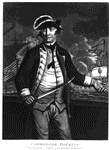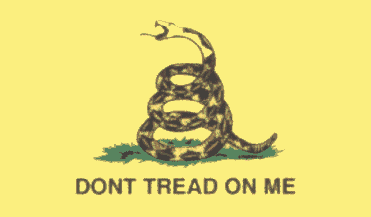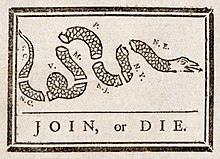British Crown dragnets of information against smuggling led to the U.S. Fourth Amendment, and U.S. defense against those dragnets was the origin of the Gadsden rattlesnake flag. Those colonial Writs of Assistance were much like that FISA court order for Verizon call logs and the NSA PRISM wide-range domestic communications dragnet, while Senators Feinstein and Chambliss act like the colonial royal governors who issued those Writs.
The Fourth Amendment to the U.S. Constitution:
The right of the people to be secure in their persons, houses, papers, and effects, against unreasonable searches and seizures, shall not be violated, and no Warrants shall issue, but upon probable cause, supported by Oath or affirmation, and particularly describing the place to be searched, and the persons or things to be seized.
Senators Feinstein and Chambliss admit there is no probable cause, and no particular description of the place to be searched or the persons or things to be seized.
 The Fourth Amendment was proposed because of things very like that
FISA court order to Verizon back in colonial times, namely
writs of assistance to stop smuggling:
The Fourth Amendment was proposed because of things very like that
FISA court order to Verizon back in colonial times, namely
writs of assistance to stop smuggling:
In 1760, governor [Francis] Bernard of Massachusetts authorized the use by revenue officers of writs of assistance. Writs of assistance were documents which served as a general search warrant, allowing customs officials to enter any ship or building that they suspected for any reason might hold smuggled goods.
Writs of assistance proved an immediately useful tool in the fight against smuggling, and many buildings and ships were ransacked and
seized. Shortly after their implementation, Boston merchants, the group primarily responsible for smuggling in the colonies, hired lawyer James Otis to challenge the constitutionality of the writs before the Massachusetts supreme court, which he did in 1761, in what is known as the Petition of Lechmere. A fiery orator, Otis argued that the writs were “against the fundamental principles of law,” and claimed that even an act of Parliament “against the Constitution is void.” It took two and a half years before the ruling in the case was delivered. After consulting extensively with authorities in Britain, and noting the use of similar writs in England, the court, heavily influenced by the opinions of Chief Justice Thomas Hutchinson, ruled against the Boston merchants and kept the writs in place.
The writs of assistance and Otis’ arguments at trial convinced many that Britain had overstepped its bounds, and objections to their use was commonly heard at town meetings and in assemblies throughout the colonies.
 That smuggling mostly was carried by ships, and the British Navy
often raided those ships, leading to the colonies commissioning
privateers to raid British men-of-war.
One of the first privateer ships was named Katy,
better known later as Providence, captained by John Paul Jones,
one of the first heroes of the U.S. Navy.
Jones’ commander was Commodore Esek Hopkins, the first
ranking officer of the U.S. Navy.
Commodore Hopkins flew from his first voyabe the Gadsden flag,
designed by a man from Charleston, Carolina,
That smuggling mostly was carried by ships, and the British Navy
often raided those ships, leading to the colonies commissioning
privateers to raid British men-of-war.
One of the first privateer ships was named Katy,
better known later as Providence, captained by John Paul Jones,
one of the first heroes of the U.S. Navy.
Jones’ commander was Commodore Esek Hopkins, the first
ranking officer of the U.S. Navy.
Commodore Hopkins flew from his first voyabe the Gadsden flag,
designed by a man from Charleston, Carolina,
 with a coiled rattlesnake and the motto “Don’t Tread on Me.”
That’s right, the rattlesnake flag was flown in defense of U.S. smugglers
and against Writs of Assistance much like the FISA order to Verizon
and even more like the NSA PRISM program.
(Commodore Esek Hopkins was also my great-great-great-great-great-grandfather.)
with a coiled rattlesnake and the motto “Don’t Tread on Me.”
That’s right, the rattlesnake flag was flown in defense of U.S. smugglers
and against Writs of Assistance much like the FISA order to Verizon
and even more like the NSA PRISM program.
(Commodore Esek Hopkins was also my great-great-great-great-great-grandfather.)
It is not patriotic for the government to spy on Americans, or for Americans or American companies to assist the government in that spying. That is what Mass. Gov.Francis Bernard argued, or as later Massachusetts royal governor Thomas Hutchinson put it: “some abridgment” of liberty to bring order.
I still prefer Ben Franklin’s view:
Those who would give up Essential Liberty
to purchase a little Temporary Safety,
deserve neither Liberty nor Safety.”
—Benjamin Franklin, An Historical Review of the Constitution and Government of Pennsylvania, 1759
Will we follow Senators Chambliss and Feinstein in acting like royal colonial governors, or will we act like Frank Church in exposing and limiting such abuses of liberty? Liberty is security.
-jsq




















